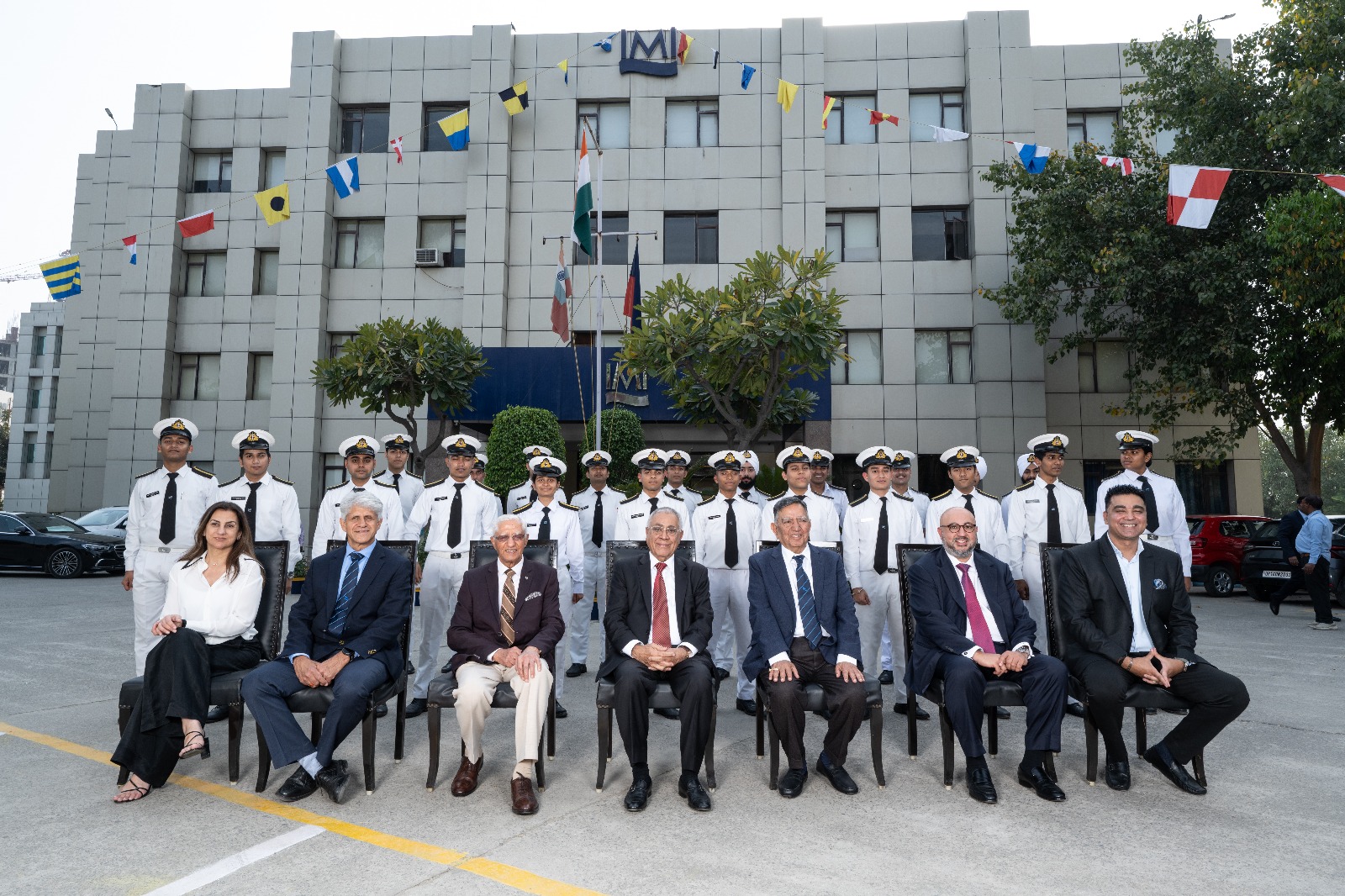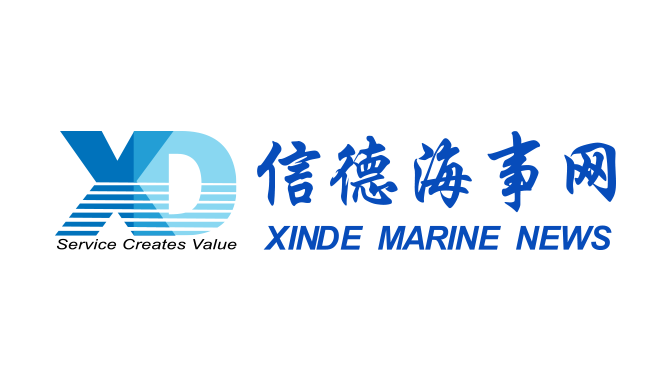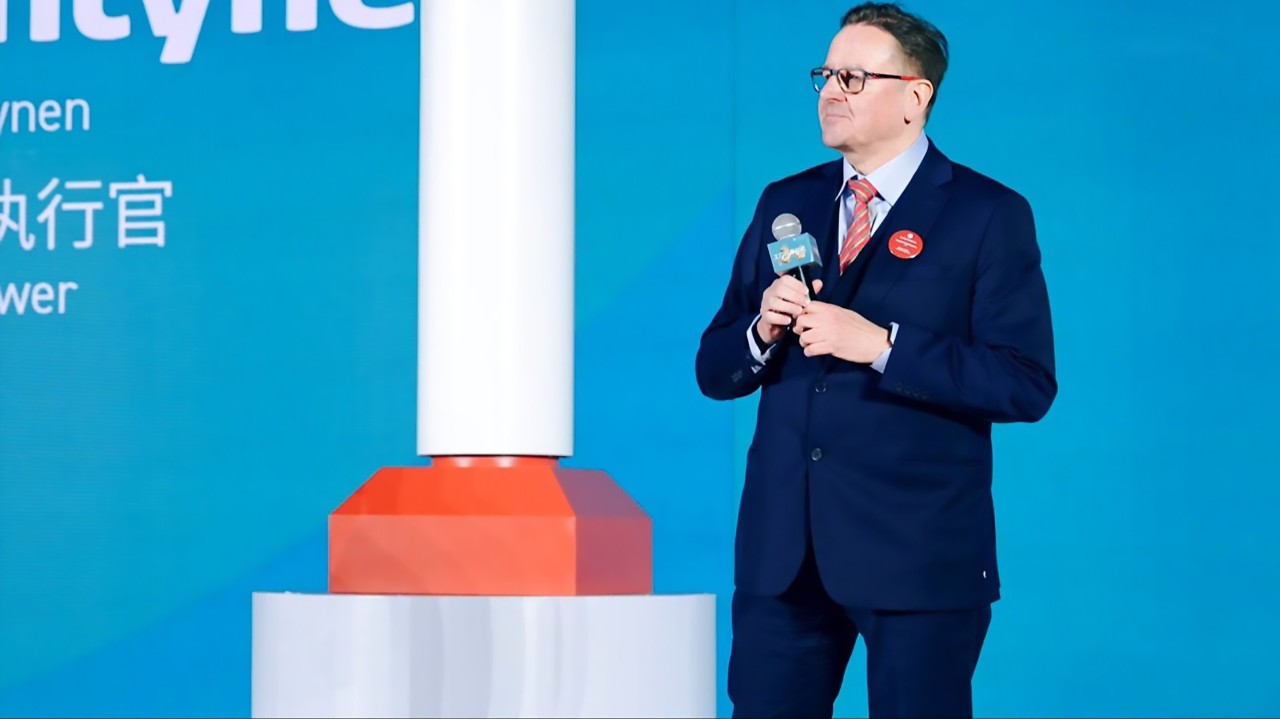
The editor has been keeping a particularly tight hand on the purse strings this year. The chance of offering lunch to a Hong Kong maritime luminary, was looking remote until I stumbled upon a notice from the Foreign Correspondents Club. The note demanded that unless a certain sum is spent each month at the Club the hapless member will be charged HK$300 for his negligence in supporting the food and beverage staff. I passed said notice to the boss and stepped back to a safe distance. After the expected fireworks I got a pass for lunch and left the boss drafting a colourful letter of complaint to the FCC.
But I was still playing safe. Anything less than a rising star in the Hong Kong maritime firmament and I could find myself chained to the desk for the foreseeable. It was lucky then that Edward Liu was available at short notice. It might say Counsel on his business card, but he is so much more than that. The boss had been intrigued by Edward’s ubiquitous presence at all the major maritime events in Hong Kong and I was keen to learn more.
I was stationed at the far end of the FCC dining room, taking a welcome draft of some iced mineral water when Edward appeared striding purposefully toward me. The moment he took off his jacket, sat down and shot me a boyish look of enthusiastic intent, I knew that any thoughts of a leisurely lunch, small talk and a bottle or two of Châteaux FCC should be abandoned.
A quick look at Edward’s past achievements and current activities quickly dispels any notions that a penchant for the maritime social occasion was a reason for his prominence at the big shipping events in Hong Kong.
Ostensibly, Edward’s day job is a shipping lawyer. He is qualified as a solicitor in England and Wales and China, specializing in commercial and shipping litigation and arbitration. But he is not just any shipping lawyer. In 2018, he was named as one of the “Top 100 Most Influential People in the Chinese Shipping Industry”; in the same year he was elected as one of the Ten Outstanding Young Persons in the China Shipping Industry; in 2017 Lloyd’s List pronounced him one of the “Top Five in the Next Generation of Shipping”. In March 2015, he was honoured as one of “The Ten Outstanding New Hong Kong Young Persons”, in which he was commended for his outstanding work performance and social responsibility to Hong Kong society. I could go on, but you get the picture.
After introductions Edward passes a cursory glance across the set menu and opts for a seafood salad followed by the sea bass. I choose the same. Clearly the meat in this lunch will be what he sees currently as his purpose in life.
Edward is among a few members of the Hong Kong maritime community who is totally dedicated to Hong Kong’s aspirations as the premier maritime centre. What’s more important is, he is in a position to do something about it. Of his membership of more than a dozen professional affiliations, I’m most interested that he has a role as a co-opted member to the Maritime and Port Development Committee of the Hong Kong Maritime and Port Board, and his membership of the China Sub-Committee of the Hong Kong Shipowners Association. And, I learn, he has the ear of the Hong Kong chief executive, Carrie Lam.
The conversation swiftly zeros in on what has been done to enhance Hong Kong’s reputation as a maritime centre and we both express satisfaction with the raft of initiatives delivered by the chief executive in the 2018 policy address, specifically the proposed tax concessions for ship leasing companies and marine insurers. “Hopefully we will see these implemented by the end of this year or early next year,” he says.
But it soon becomes apparent that being a maritime influencer has its low moments as well as its highs. Edward is not entirely satisfied with the manner in which Hong Kong maritime is being reformed.
“I was a bit disappointed that the comprehensive plan for the development of the maritime sector that was stated by the chief executive in her policy address in 2017, was absent in 2018. From my perspective I have always believed that a comprehensive plan for promoting the development of Hong Kong’s shipping industry is very important. I don’t know why it was no longer there in last year’s policy address,” he says. But he is far from finished on this topic.
“We need to have a comprehensive plan where everybody can see what the short term, mid-term and long-term objectives are,” he adds.
“For example, from a Maritime law firm perspective, we all realise that there are not enough principal stakeholders in the shipping industry here to keep us fully occupied. We are happy to see in the policy address that the Government is committed to attract more. But…” As identified by the last year’s policy address, principal stakeholders in shipping context include shipowners, ship operators and ship managers.
At this point Edward notices lunch has been served. He takes a morsel or two to punctuate the train of conversation and thus place more emphasis on what is to follow.
“Let us know how! What is your plan? And when do you think that you will attract more principal stakeholders? Then we’ll be more confident when we consider recruiting lawyers and encourage them to take up maritime law rather than other law. All the shipping law firms in Hong Kong are looking to diversify our practice because we cannot adequately reward ourselves only with shipping work.”
At this point even I’m letting the sea bass go cold. I’m feeling shamed by my increasingly glass half empty feelings about what can be done to reach our goals as a maritime centre, while Edward’s glass is bubbling over like a glass of the finest brut champagne.
We both return our knives and forks to the table, and a concerned waiter is hovering a few feet away looking as if he is expecting a complaint any moment. But this is not the case Edward is simply building up another head of steam.
“Singapore introduced its 2030 plan for their shipping industry. In the UK they have unveiled their 2050 objectives. Why can we not follow these examples?” And in doing that Edward firmly believes that Hong Kong should not always be looking North for the answers.
“China has to care about the whole country, but the one country two systems is still running well at least from the economic perspective. When it comes to economic development this is entirely in the hands of Hong Kong. What the Central Government can do is very limited. They can only make pronouncements as they did in the most recent five-year plan that they support Hong Kong to maintain its position as an international financial trade and shipping centre. That is all. “
“How Hong Kong is strengthened as an international shipping centre is up to the Hong Kong Government. The Central Government does care about Hong Kong’s economic development. A major purpose of drafting the Greater Bay Area plan is to help Hong Kong to tap into China’s development.”
“A Comprehensive plan and vigorous promotion are what we need. And I shall be doing my best to get this across through my membership of the HKMPB and in my contact with the chief executive.”
You know. I’m sure he will.
Source:
hongkongmaritimehub
The opinions expressed herein are the author's and not necessarily those of The Xinde Marine News.
Please Contact Us at:
admin@xindemarine.com


 Dr. Harry S. Banga and Mr. Angad Banga of The Carav
Dr. Harry S. Banga and Mr. Angad Banga of The Carav  Liberian Registry Welcomes Kyle Hurst as Senior Vic
Liberian Registry Welcomes Kyle Hurst as Senior Vic  KATALIST: Accelerating Green Shipping through Innov
KATALIST: Accelerating Green Shipping through Innov  Revealing the risks: digital solutions for complian
Revealing the risks: digital solutions for complian  Beibu Gulf Port Chairman Zhou Shaobo Passes Away at
Beibu Gulf Port Chairman Zhou Shaobo Passes Away at  Exclusive Interview with Norsepower CEO: Bringing S
Exclusive Interview with Norsepower CEO: Bringing S